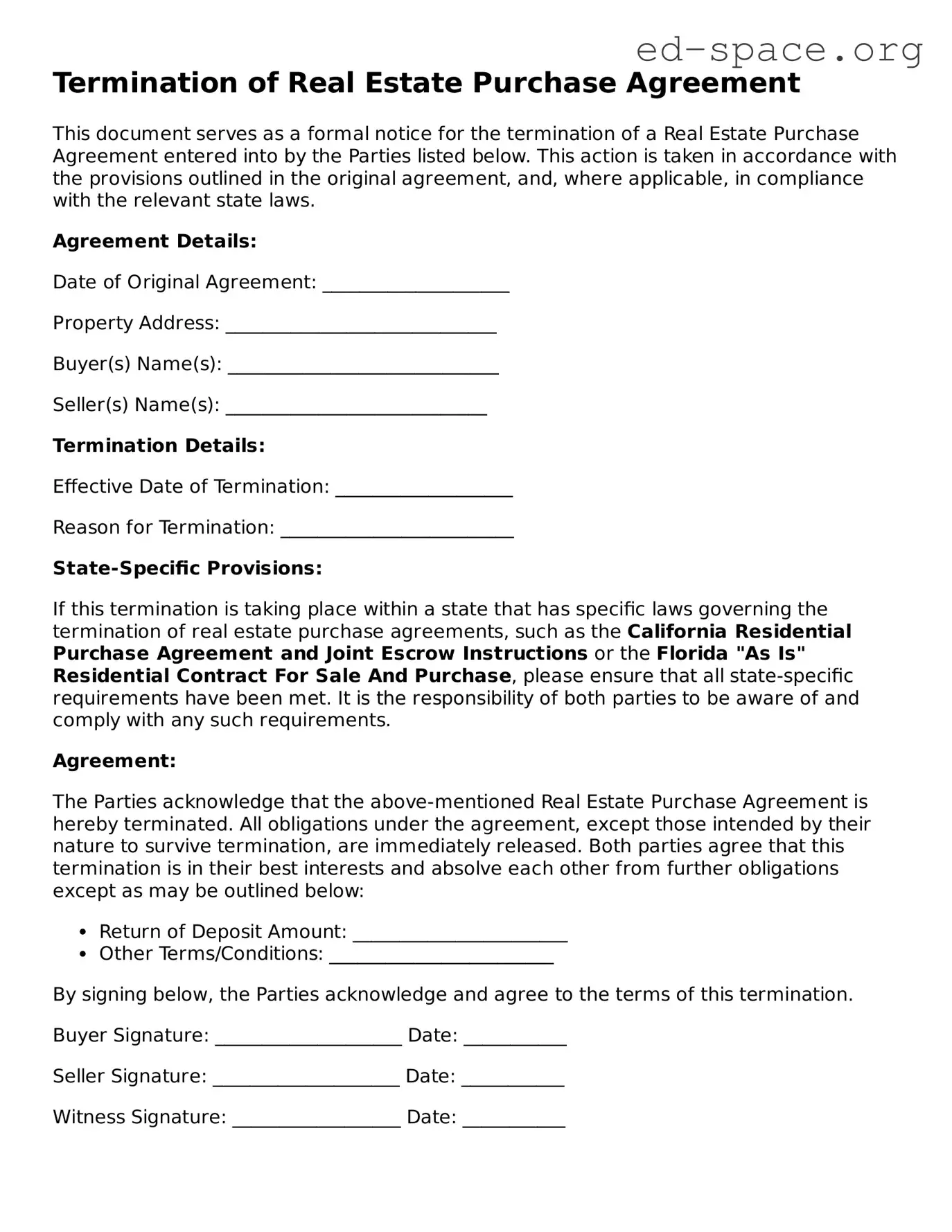Termination of Real Estate Purchase Agreement
This document serves as a formal notice for the termination of a Real Estate Purchase Agreement entered into by the Parties listed below. This action is taken in accordance with the provisions outlined in the original agreement, and, where applicable, in compliance with the relevant state laws.
Agreement Details:
Date of Original Agreement: ____________________
Property Address: _____________________________
Buyer(s) Name(s): _____________________________
Seller(s) Name(s): ____________________________
Termination Details:
Effective Date of Termination: ___________________
Reason for Termination: _________________________
State-Specific Provisions:
If this termination is taking place within a state that has specific laws governing the termination of real estate purchase agreements, such as the California Residential Purchase Agreement and Joint Escrow Instructions or the Florida "As Is" Residential Contract For Sale And Purchase, please ensure that all state-specific requirements have been met. It is the responsibility of both parties to be aware of and comply with any such requirements.
Agreement:
The Parties acknowledge that the above-mentioned Real Estate Purchase Agreement is hereby terminated. All obligations under the agreement, except those intended by their nature to survive termination, are immediately released. Both parties agree that this termination is in their best interests and absolve each other from further obligations except as may be outlined below:
- Return of Deposit Amount: _______________________
- Other Terms/Conditions: ________________________
By signing below, the Parties acknowledge and agree to the terms of this termination.
Buyer Signature: ____________________ Date: ___________
Seller Signature: ____________________ Date: ___________
Witness Signature: __________________ Date: ___________
This document is made in good faith by both parties and is intended to ensure a fair and equitable resolution to the termination of the Real Estate Purchase Agreement.
